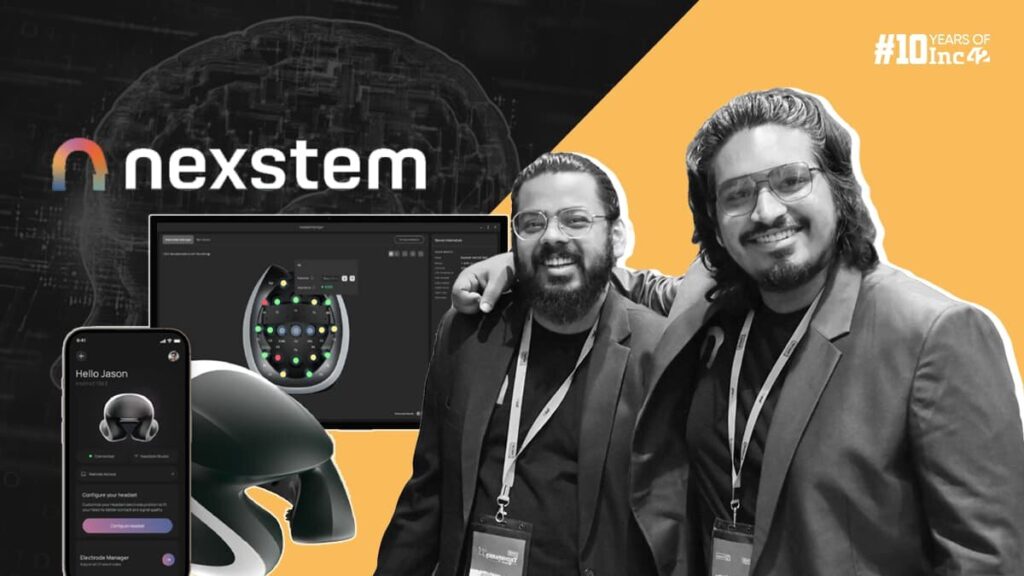Nexstem, a trailblazing startup in the neurotech sector, is setting a new standard in brain-computer interface (BCI) technology for enterprises. Founded in 2020 by BITS Pilani alumni Siddhant Dangi and Deepansh Goyal, the company is focused on developing an ecosystem that captures, analyzes, and encodes brain signals into actionable data, accessible to a broad range of industries beyond traditional medical applications.
The fascination with brain-machine interactivity has captivated the tech world, receiving significant attention with the emergence of companies like Elon Musk’s Neuralink. However, Nexstem has taken strides to make this cutting-edge technology more versatile and cost-effective. Their flagship product, the Nexstem Instinct headset, coupled with a supportive operating system, provides a user-friendly, high-precision tool for decoding brain signals, which can be integrated into various research and commercial endeavors.
By harnessing electroencephalography (EEG), Nexstem’s non-invasive approach ensures the accuracy of captured brain signals by minimizing noise interference. Though still in its beta phase, the company has applied for patents and has already secured $3.5 million from prominent investors, including InfoEdge and Gruhas. This funding will facilitate the expansion of Nexstem’s intellectual property portfolio, which currently includes sensor technologies and advanced signal acquisition systems, crucial for developing robust BCI products.
Nexstem’s innovative approach promises to revolutionize industries such as gaming, where real-time user perceptions can dynamically alter gameplay experiences. Simultaneously, mental health startups stand to benefit from leveraging Nexstem’s technology for diagnostic and therapeutic advancements.
The pivot from prosthetics to broader commercial neurotech wasn’t a straightforward journey for Nexstem’s founders. Having observed the challenges of existing prosthetic technology, Dangi and Goyal realized the potential impact of their work lay in the widespread application of brain signal analysis. They shifted focus to developing cost-effective, high-quality EEG systems, eventually leading to the establishment of Nexstem.
As Nexstem gains momentum, its main revenue stream hinges on IP licensing to enterprises and research institutions. With plans to commercialize the Instinct headset as a comprehensive development kit, the company is preparing for an official product launch that is likely to mark a significant milestone in biosignal technology.
Looking ahead, Nexstem is eyeing further expansion of its technology offerings. This includes developing electroexpectogram (EXG) sensors, integrating non-invasive brain stimulation techniques, and potentially paving the way for implantable devices. With the global BCI market expected to grow significantly over the next decade, Nexstem’s ambitions are aligned with broader industry trends.
Despite the technical and ethical challenges inherent in the neurotech space, Nexstem remains committed to its vision of embedding its innovations into semiconductor chips to drive future technological advancements. As the sector navigates complex issues of data privacy and ethical use, Nexstem’s responsible approach will be crucial in maintaining trust and ensuring the secure application of brain data at scale.
By positioning itself at the forefront of neurotech, Nexstem is not only contributing to scientific advancement but also setting the stage for a new era of human-computer interaction, guided by their expertise and cutting-edge solutions.


